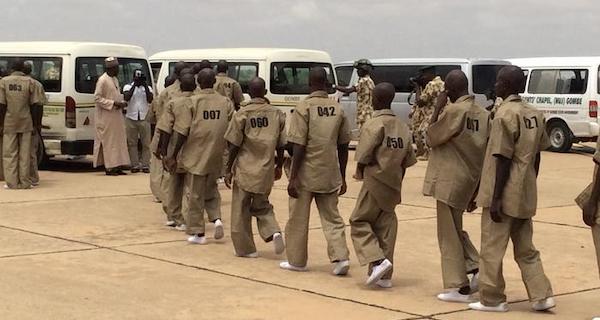Victims of Boko Haram’s Attacks

By Femi Oluwasanmi
The amnesty granted to the “repentant Boko Haram members” under the disguise of “Operation Safe Corridor” amidst the atmosphere clouded with killings, bombing, malnutrition of victims of their nefarious activities currently seeking refuge in the Internally Displaced Person (IDP) camps across the country and those scattered abroad is a misplaced piority.
On 11th June, 2020, the Defence Headquarters, Abuja, through her Defence Media Operations stated that 603 former Boko Haram fighters will be reintegrated to their communities by July, after undergoing Operation Safe Corridor’s de-radicalisation, rehabilitation and reintegration. An initiative through which 280 clients have been successfully reintegrated into the society, while 25 of this number were repatriated to Niger Republic.
Though, this seems to be in line with the International best practice, but looking at the timing of this programme and the neglect of the victims of Boko Harram’s attack at the various IDP camps across the country, it seems the programme needs a recalibration in order to achieve its goal.
Just of recent, the Governor of Borno State, Professor Babagana Zulum was attacked by the Boko Haram sect at Baga area of the State despite his security details and the mega military camps located at the area. In fact, this attack prompted an emergency meeting of the Nigerian Governors Forum where they agreed to meet President Muhammadu Buhari, on the worsen security issue in Nigeria.
Similar thing could be deduced from the video of the killing of the five aid workers gruesomely executed by the Boko Haram despite plea from different quarters advocating for their release. This is not to talk of the silent testimonies of those that escaped their horrific display in recent time.
In fact, there was a report that one of the repentant Boko Haram members released by the military killed his father and threatened other members of the family on arrival before returning to his group in the forest. No wonder, senator Ali Ndume, a Senator representing one of the Senatorial districts in the region threatened to take legal action against the Military if they continue the programme.
Apart from the Senator, there are people that have continue to question the constitutional backing of the programme especially, putting into consideration the huge damage done by the sect to the North East and the Nation at large.
Based on the report of the Nigerian Security Tracker (NST) from June 2011 through June 2018, the number of people that have been killed in the 2,021 incidents involving Boko Haram, is 37,530 people. While the number of displaced persons in the conflict according to the United Nations’ refugee agency is 2.4 million. This not to talk of more than seven million at risk of starvation.
Also, the nefarious activities of this sect have led to the degradation of infrastructure, including the closing or destruction of more than half of the schools in the region and the near-complete breakdown of an already weak public health system.
Most people living in the communities could not sleep with their two eyes closed because of the continuous threat from the Boko Haram. In some places, people are being forced to pay royalty to the sect in proxy.
Even, those in most of the IDP camps are clamoring for government intervention in their sorry state because of the lack of social amenities and food which have reduced the camp to a glorified prison. Yet, the military continue to release this toxic element to the society under the guise of operation safe corridor.
The funniest part is that the majority of the communities where these bad elements have wrecked havoc were not carrying along in the formation and the implementation of this programme which is a negation of the international best practice which they claimed to be the rationale behind the programme.
Part of the international best practices is community engagement which ought to be the first thing to be done in the formation and implementation of this kind of programme. No wonder, the narrative of the war against Boko Haram since the inauguration of the operation safe corridor in 2016 has been like the narrative of “motion without movement”.
Though, it is not a bad idea to adopt international best practice in handling issue like this, but it becomes poison when it is done at the detriment of the welfare of the victim of this horrific display.
Preferably, the military should have waited till the end of the war when the attacks of the sect no longer pose serious threat to our economy, unity and peace. Or, they should have kept them in their National Headquarters at Abuja pending the time the community would recovered from the trauma occasioned by the Boko Haram attacks.
Therefore, the time has come for the military to reevaluate this programme and give it human-face by creating an empowerment programme for the victim of Boko Haram’s attacks so that they can regain their stand from poverty and be connected back to the economic mainstream of the nation just like the way it was before the advent of Boko Haram so that the “operation safe corridor” will not metamorphose to “operation strong crisis” in future.
Femi Oluwasanmi wrote from Ibafo, Ogun State.

